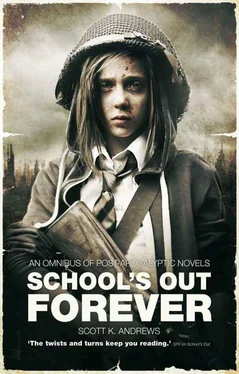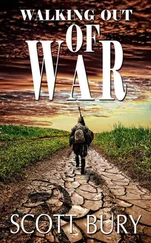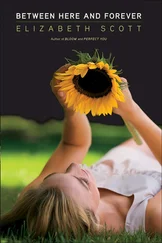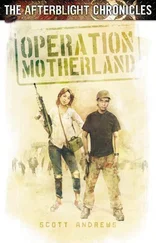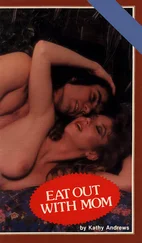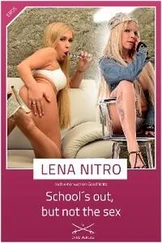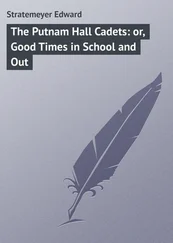ARTHUR ST JOHN Smith sat at a desk in a bland air-conditioned office, pressed the return key on his keyboard and wondered where it had all gone wrong.
When the viral apocalypse wiped the world clean, he had been kind of excited. The terror, the wet beds and the months of self-imposed quarantine in his pokey flat living off cat food and, eventually, the cat, were a bummer, but he eventually came to see his survival as a grand opportunity to turn things around.
All his life he’d been in search of a calling. He was pretty sure that Data Entry Clerk (Croydon (South) Council) wasn’t it, but he didn’t know what was.
Maybe his new job as Survivor (End of the World) would lead him to his destiny.
His first foray into the devastated world beyond his front door was the most thrilling thing that had ever happened to him. He pulled on his gloves, stuffed his belt with kitchen knives, and bound his face and head with torn sheets, leaving just a slit for his eyes. Once he worked out that his glasses wouldn’t balance on a cloth-swathed nose, he sellotaped them to his bindings and strode from the house, ready to do battle. In his head it was a grand narrative — meek suburban wage-slave reborn as survivalist hunter-gatherer, stalking the ravaged landscape, calm and ruthless, ready to fight looters and feral dogs.
Maybe there was a damsel in distress somewhere, in need of rescuing. He reasoned that such a maiden may have been even more reluctant to emerge than he, so he checked every house on his street, hoping to find a lissom beauty cowering in terror, just waiting for him to hold out his marigold-gloved hand and tell her everything would be all right.
He especially held out hope for number 34, where that mousey woman from the library lived. She had smiled at him once, a year ago, on the tram. It had been a Monday. But in her house, it was the cats that had done the eating. So he struck out into the wider world.
His big mistake, he now knew, had been stealing the car.
Before The Cull, he had walked past the showroom on his way to work and every day, without deviation, he would glance at the car as he walked past. He’d never stop and stare at it, that would be ridiculous, but he snatched glimpses of it out of the corner of his eye and nurtured a hard covetous knot in his stomach at the thought of it.
Once he was sure his road was empty of life, his first thought had been for the car. He strolled down the familiar streets, retracing his old route to work, marvelling at the changes in the landscape.
There was Mr Singh’s corner shop where he used to buy his wine gums — two packs every Monday morning, enough to last him a week. The shop had been looted and set on fire; a charred corpse dangled out of the upstairs window.
There was the bus stop where the hoodies congregated. They’d jeered at him once as he walked past. Arthur pictured them dying horribly. He wasn’t imaginative enough to conjure anything really gruesome, but the thought of them dying of the plague was satisfying. He chuckled. Served the vicious little bastards right.
There was the primary school. He ignored it; he’d never liked kids.
Finally, there was the showroom. His spirits sank when he saw that the windows were smashed and the cars were all gone. His brogued feet crunched over the glass-strewn tarmac as he explored the wreckage. Nothing there. Out the back, however, he saw a garage locked up with a heavy chain. He paused. Should he?
His colleagues would have described him as bland. Not timid, but not dangerous. But with no-one to tell him off, no social disapprobation to keep him meek and mild, he felt a sudden rush of reckless freedom. Licking his lips in anticipation, he scoured the garages for a crowbar, then returned and jemmied the lock away, opening the garage doors to reveal his heart’s desire.
A Lamborghini Murciélago, abandoned with the keys still in the ignition. The dealer must have thought to hide it when he realised things were going to hell.
Half full of petrol, untouched, jet black bonnet gleaming in the sunshine, the car invited him to take it for a spin. It was like some magic gift, so improbable it had to be intended. He looked left and right before he got inside, instinctively wary of discovery. But nobody yelled at him, or took a shot at him. The seat moulded itself to his saggy rear, allowing him to recline in the low slung vehicle. It felt right; it felt like a throne. This car was his now and why not? Didn’t he deserve it?
He closed the door and gently, almost reverently, turned the key. The car purred into life. He placed his hands on the steering wheel, considered taking off his rubber gloves so he could feel the real leather, but decided to play it safe, pressed his foot on the clutch and then gently depressed the accelerator, revving the engine. The car growled, roared, came alive around him.
In that plush seat, enveloped in that purring, eager metal beast, he felt a rush of something new and strange.
Power.
He was free and alive and it felt good. He released the handbrake and let her rip, tearing down the Queensway towards Croydon town centre, weaving in between ruined and burnt out wrecks. This must be what it felt like to be a rock star, he thought. Like Chris de Burgh going smooth at ninety, feeling good to be alive; or Chris Rea, on the road to hell.
His drive lasted for thirty seconds, and now, two months later, as he scrolled down the spreadsheet preparing for another dreary morning of data entry, he looked back on that glorious half-minute and thought that probably it would be the most dramatic thing that had ever happened to him.
Because the men in the yellow hazmat suits had been searching the town for survivors, and he’d ploughed straight into a group of them outside Morrisons.
The ones he didn’t kill were not happy with him.
He heard the office door behind him swing open, but he didn’t turn to see who it was. No point; he knew already.
“You finished yet, Smith?”
“Ha ha, only just started, Mr Jolly.” The fake laugh, perfected years before in the accounts payable department of Croydon (South) Council, came easily to him. It was his defence mechanism, a way of signalling that he wasn’t a threat. If he were a pack dog, he’d be bowing his head, lowering his tail and whining.
Jolly was his supervisor, a whinging Wandsworth solicitor who’d landed himself a cushy little number running the bureaucracy in the main refugee camp for Kent. Supercilious, patronising and grey, he was identical in almost every respect to Arthur’s boss at the Council.
“Be sure you’re done by lunchtime,” said Jolly. “The camp commander wants that list pronto.”
“No problem, sir, be done in a jiffy.”
Arthur’s supervisor gave an oleaginous moan of assent and retreated. Arthur sniggered. Camp commander; that sounded gay.
He reminded himself to be grateful. The collectors could have killed him there and then, as he’d sprawled out of the Lamborghini, tearing at his bindings so he could empty the vomit from his mouth.
Instead, they’d thrown him into their van, with the corpses, and driven him here, to the camp. They’d been a bit rough with him at processing, but he was so terrified that he’d offered no resistance at all. Identified as a low level clerical worker, grade 5F, he’d been set to work in the offices, away from the barracks and the experimental wings, where all sorts of unpleasantness was visited on the survivors.
They were trying to find a cure, and they didn’t care what it took, or who they hurt in the process. Who they thought they were going to cure, he didn’t know and he didn’t ask.
Barrett, the man who brought round the tea urn, reckoned that the government and royal family were all holed up in a bunker underneath Buck House, waiting for a cure so they could emerge and lord it over what was left. Arthur didn’t really believe that.
Читать дальше
